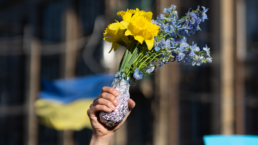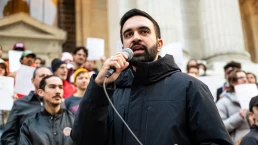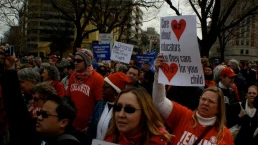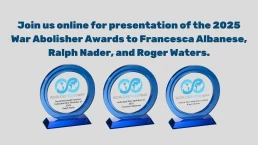Government and civil society can take immediate action to break the dynamic of violence and build a more sustainable just peace in Ukraine.
By Eli S. McCarthy, Waging Nonviolence
The war in Ukraine is a human and ecological catastrophe. We have failed to create the social conditions for the prevention of large-scale violence. We have failed to escape the cycle of threats, blame and retribution that escalates hostility and distrust. We have failed to acknowledge the relevant root causes and responsibility for harm from key stakeholders. We have failed to engage in diplomacy that prioritizes the dignity and human needs of the key stakeholders, with a willingness to compromise, and a focus on saving lives. We have failed to adequately train people in nonviolent conflict, resistance and civilian-based defense. We cannot afford to make these mistakes again.
Yet, despite all these failures, there are still signs of hope. A variety of creative, courageous, nonviolent ways of resistance are being activated and could be scaled up by Ukrainians and others.

Ukrainians have been blocking convoys and tanks, and standing their ground even with warning shots fired in multiple towns. In Berdyansk and Kulykіvka people organized peace rallies and convinced the Russian military to get out. Hundreds protested the abduction of a mayor, and there have been protests in Kherson against becoming a breakaway state. Ukrainians have fraternized with Russian soldiers to lower their morale and stimulate defections. There’s been humanitarian assistance (with Orthodox priests stepping up as escorts) and caring for displaced persons by the Red Cross and Doctors Without Borders.
Recent Posts
Politicians Are Betraying Gen Z On Climate
July 10, 2025
Take Action Now While Gen-Zers thrift, knit, crochet, and find other ways to reduce our footprints, Trump and the GOP are greenlighting more climate…
Trump’s Deportation Threat Against Zohran Mamdani Is Shameful
July 10, 2025
Take Action Now In only half a year of Donald Trump’s presidency, he and his allies have turned deportation into an explicitly political threat…
Teachers Union Votes To Cut Ties To The Anti-Defamation League
July 10, 2025
Take Action Now In a momentous vote, the National Education Association voted to cut all ties with the Anti-Defamation League. The reason? “Despite…
2025 War Abolisher Awards Go To Albanese, Nader, Waters
July 9, 2025
Take Action Now The purpose of the awards is to honor and encourage support for those working to abolish the institution of war itself.By World…




